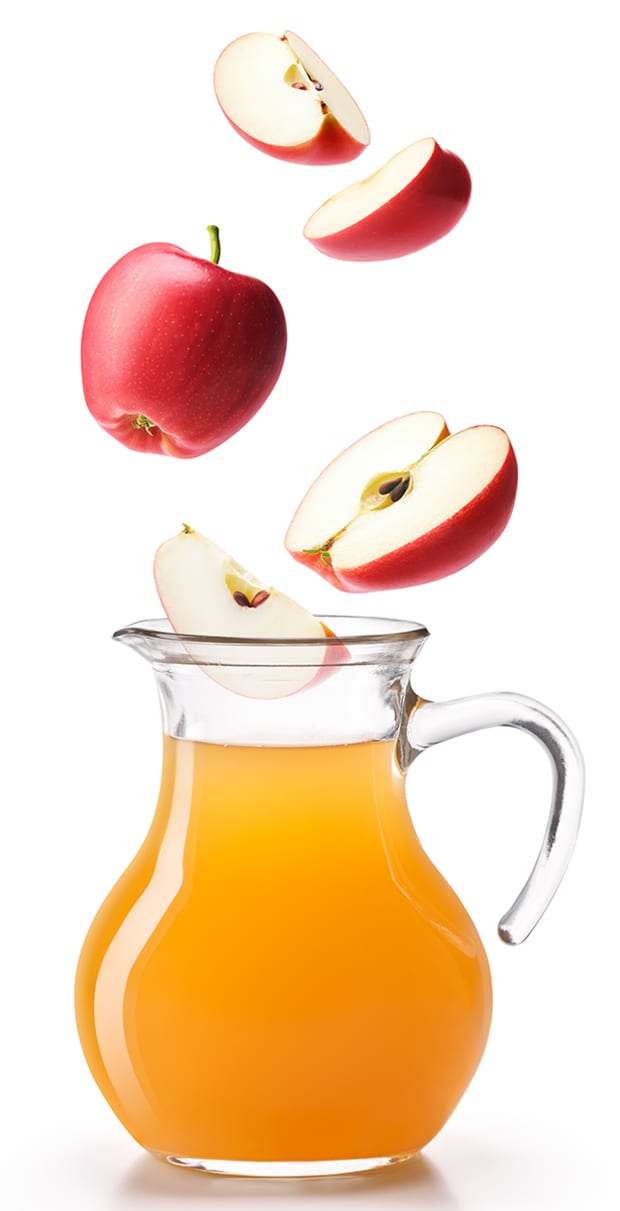- Like
- SHARE
- Digg
- Del
- Tumblr
- VKontakte
- Flattr
- Buffer
- Love This
- Save
- Odnoklassniki
- Meneame
- Blogger
- Amazon
- Yahoo Mail
- Gmail
- AOL
- Newsvine
- HackerNews
- Evernote
- MySpace
- Mail.ru
- Viadeo
- Line
- Comments
- Yummly
- SMS
- Viber
- Telegram
- JOIN
- Skype
- Facebook Messenger
- Kakao
- LiveJournal
- Yammer
- Edgar
- Fintel
- Mix
- Instapaper
- Copy Link
What’s a picnic without comfort food like potato salad? Our sweet-tart German version replaces the heavy canned mayo of classic potato salad with a tangy shot of apple cider vinegar. As I wrote in The 150 Healthiest Foods On Earth, apple cider vinegar has a long tradition of being used as an all-purpose medicinal food. If you use the organic, less processed version, you’ll be getting a hefty dose of the antioxidants and vitamins found in apples, and the vinegar will help regulate your blood sugar and “alkalize” your system (trust us, that’s a good thing).
Many of the nutrients found in potatoes are concentrated in the skin, so you’ll get some fiber, iron, vitamin C, B6, potassium, manganese, and copper, as well as many beneficial antioxidants. The turkey bacon and eggs add a double dose of protein, which helps balance out the carbs in this filling and satisfying side.
—Dr. Jonny
Apple Cider Vinegar
I included apple cider vinegar in my book, The 150 Healthiest Foods on Earth because it’s a virtual infusion of healthy minerals, vitamins, and amino acids. In fact, unpasteurized vinegar can contain as many as 50 different nutrients, including those that come from the original “starting” material (in this case, apples).
Apple cider vinegar is cheap and easy to use, and it benefits our health in numerous ways. Hippocrates, the father of medicine, thought of it as a powerful elixir and a naturally occurring antibiotic and antiseptic that fights germs. Ancient Egyptians, Romans, and Greeks used it. And apple cider vinegar is mentioned in the Bible as an antiseptic and healing agent. Even Columbus had barrels of vinegar on his ships for the prevention of scurvy. Indeed, apple cider vinegar has been used for thousands of years, as both a health and a cleansing agent.
But note well the term “unpasteurized.” Remember that pasteurization is basically a process that subjects foods to tremendous amounts of heat. That has the “benefit” of destroying microorganisms, but it’s a dubious benefit when it also destroys the heat-sensitive vitamins and enzymes that made it a good food to begin with. To get the health benefits of vinegar, look for “unpasteurized,” “unfiltered,” “traditionally brewed,” “traditionally fermented,” or “aged in wood” on the label.
Vinegar and Diabetes
In a study published in Diabetes Care, apple cider vinegar significantly improved insulin sensitivity in insulin-resistant subjects. (The vinegar also improved insulin sensitivity somewhat in diabetics, but the results didn’t quite reach statistical significance.) The authors stated that “vinegar may possess physiological effects similar to … metformin,” a drug typically given to diabetics and prediabetics to increase insulin sensitivity, and noted that “further investigations to examine the efficacy of vinegar as an antidiabetic therapy are warranted.”
Since insulin resistance is a feature of metabolic syndrome and often precedes diabetes, anything that makes the cells more sensitive to insulin and helps control blood sugar is worth checking out. Nutritionist and researcher Jeff Volek, PhD, RD, suggests a salad with vinegar at the beginning of every meal for its potential help with managing blood sugar.
Notes from the Clean Food Coach:
To save time, you can cook the potatoes and bacon ahead, make a simple dressing, and toss them together lightly with the prepared egg and green onion. Warm everything gently in a large sauté pan just before serving.
To make the dressing, whisk together 1 Tbs. olive oil, 2 tsp. apple cider vinegar, 1 tsp. country Dijon mustard, ½ tsp. sugar, and ½ tsp. salt.
The Recipe
Click here for the Lighter German Potato Salad recipe


